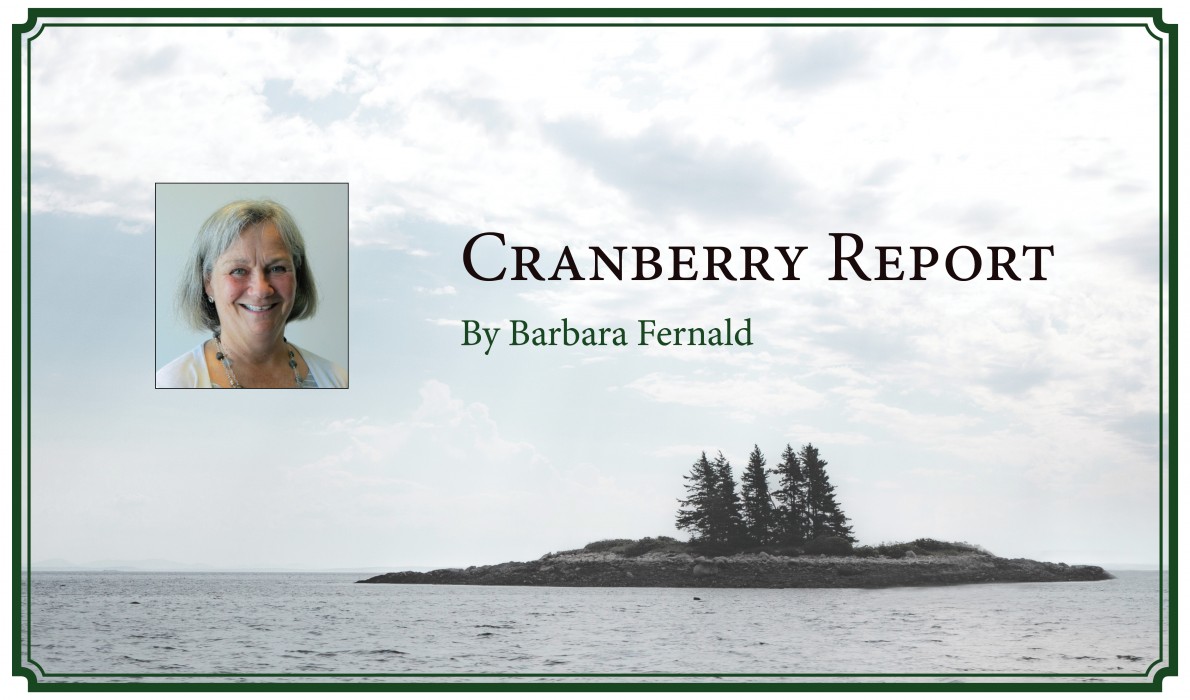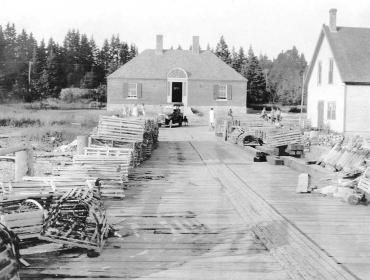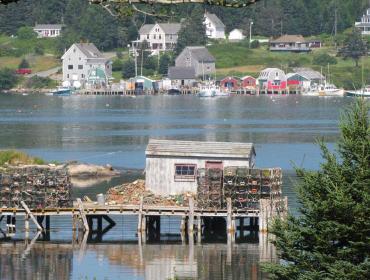Posted April 10, 2019
Last modified April 10, 2019
By Barbara Fernald
In the middle of winter, on a tiny island off the coast of Maine, I don’t think there’s a much better feeling than standing next to a wood stove, absorbing all the warmth I want.
I love our stove, even with all the mess that accompanies wood heat. The constant bark bits and the extra dust from removing the ashes are still worth the disarray. Kind of like having a pet, I imagine.
We have a Monitor heater for when we go away, and for back up, but primarily we heat the house with a wood stove.
Bruce takes on most of the work when it comes to our firewood. He and a few other men on the island are quick to help cut up fallen trees and remove them. Some years he worries about whether we will have enough dry firewood to get through the winter, but we have never run out. He keeps a sharp eye out for newly fallen trees on our afternoon walks, disdaining cut fire wood that has been left to rot. He notes carpentry work and the opportunities to gather scraps for kindling.
We gave our baby sons their first baths in a tub next to the wood stove. The hearth has seen several iterations of flooring and furniture. Our wood stove warmed us as our television technology advanced from watching VHS tapes to getting a satellite connection. From renting DVDs through the mail to having high-speed internet for streaming movies and shows. Who knows what’s next for winter entertainment? Whatever it is I know I’ll probably be sitting next to our wood stove to participate.
Speaking of winter entertainment, a few of my island friends are stretching themselves creatively by going outside their comfort zones to draw, paint, or make block prints. Our editor, Tom, challenged us to find a way to love writing. I knew I wanted to write about the wood stove, and I remembered how much fun it was to write a pantoum. (Definition from www.poets.org: The modern pantoum is a poem of any length, composed of four-line stanzas in which the second and fourth lines of each stanza serve as the first and third lines of the next stanza. The last line of a pantoum is often the same as the first.)
Nothing like taking a nice big stretch while warming up by the wood stove.
Pantoum for a Wood Stove
We’ve heated with wood for forty years,
I think we’re on stove number three.
That primal heat I deeply revere,
Burning chunks from the local trees.
I think we’re on stove number three.
Temperature dictates the wood we will use.
Burning chunks from the local trees,
Hard or soft, the wood gathered by Bruce.
Temperature dictates the wood we will use,
Coldest nights call for ash or maple.
Hard or soft, the wood gathered by Bruce.
Birch and spruce are the day time staple.
Coldest nights call for ash or maple,
Though, our fire will not last until dawn.
Birch and spruce are the day time staple
when there’s ice and snow on the lawn.
Though our fire will not last until dawn,
Bruce gets up in the night to refill it.
When there’s ice and snow on the lawn,
Morning warmth comes from stove’s consumed billets.
Bruce gets up in the night to refill it.
On the bright days we let it go out.
Morning warmth comes from stove’s consumed billets,
Stays beyond noon when March sun is about.
On the bright days we let it go out.
Come spring we won’t use it as much.
Beyond noon when March sun is about,
we start our kerosene heater with a touch.
Come spring we won’t use it as much,
The end of the wood heat season is nigh.
We start our kerosene heater with a touch,
And I bid my dear wood heat, goodbye.
The end of the wood season is nigh,
We’ve heated with wood for 40 years,
And I bid my dear wood heat, goodbye
The primal heat I deeply revere.
Barbara Fernald writes (columns and poems) and makes jewelry on Islesford (Little Cranberry Island).

Contributed by




